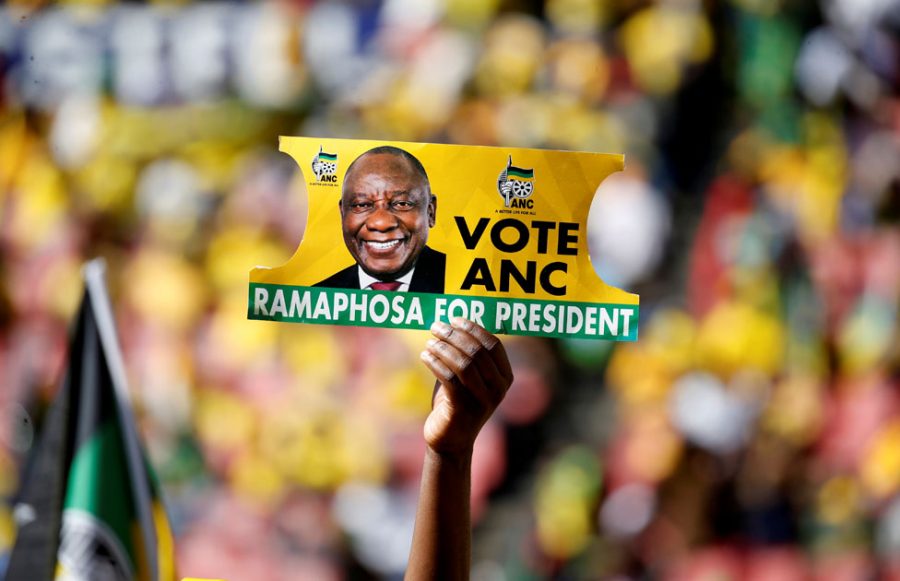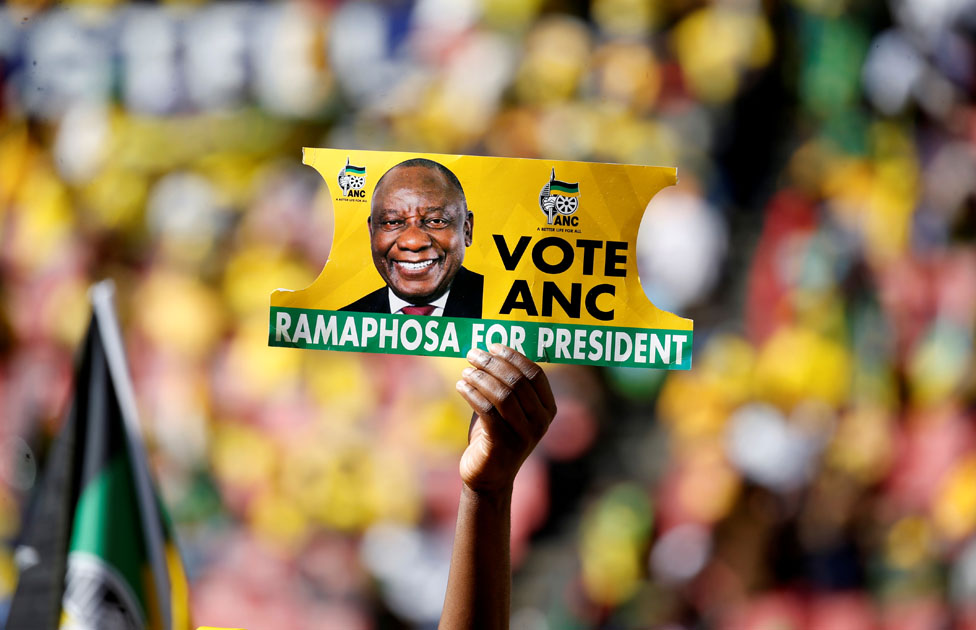
SA Elections: “Turnout Lower in Black Areas and Higher in White Areas”
PRETORIA – Results from over half of voting districts in South Africa’s election put the African National Congress on course to retain power but at risk of its worst performance in a national poll since the end of white minority rule 25 years ago, as analysts say the turnout in black areas was lower this […]

PRETORIA – Results from over half of voting districts in South Africa’s election put the African National Congress on course to retain power but at risk of its worst performance in a national poll since the end of white minority rule 25 years ago, as analysts say the turnout in black areas was lower this year.

As of 19h00 on Thursday, votes in 59 percent of 22,925 voting districts had been counted. The early tallies put the ANC on 57 percent in the parliamentary race, with the main opposition Democratic Alliance (DA) on nearly 23 percent and the leftist Economic Freedom Fighters (EFF) on nearly 10 percent. Here are the exact tallies:

Based on those results, political analyst Melanie Verwoerd predicted the ANC was set for a vote share of 56-57 percent.
The ANC has not taken less than 60 percent of votes in a national election since it swept to power in South Africa’s first all-race poll in 1994.
“The ANC result is going to be lower because of voter turnout, which could be the lowest at any parliamentary election since 1994,” Verwoerd said.
“Turnout has been lower in areas where more black voters live, while the turnout has been higher in the white areas.”
Longtime supporters of the ANC, as well as other South Africans, have expressed frustration at rampant corruption, high unemployment and racial inequalities that persist in SA 25 years after apartheid ended.
Analysts have said that a poor showing for the ANC would embolden opponents of President Cyril Ramaphosa and risk a potential leadership challenge against him, but Verwoerd says: “As long as the ANC gets more than 55 percent, things will be okay for Ramaphosa inside the ANC.”
The Council for Scientific and Industrial Research (CSIR), a government agency, also forecast a decline in support for the ANC, which it predicted would get just over 57 percent in the parliamentary vote and about 50 percent in the provincial polls.
Turnout on Wednesday was just over 65 percent, according to the votes processed so far, the Electoral Commission said.
ANC Deputy Secretary General Jessie Duarte said she expected the ANC’s vote share to grow as results from larger voting districts filtered through.
Chief Electoral Officer Sy Mamabolo said the Electoral Commission hoped that results from around 90 percent of voting districts would be declared by 10 pm local time (2000 GMT), with the remaining results to be released on Friday morning.
At the last election in 2014, the ANC won 62 percent of votes, the DA 22 percent and the EFF 6 percent.
The rand and government bonds firmed in early trade on Thursday, but traders said the currency was expected to be volatile as results emerge.
Election officials said voting had in general progressed smoothly, although 19 people were arrested today because of alleged double voting.
(Additional reporting by Naledi Mashishi, Onke Nguka and Mfuneko Toyana in Pretoria; Writing by Olivia Kumwenda-Mtambo and James Macharia; Editing by Catherine Evans)
